Tongan culture helps weave communities together
By MAS Team
For almost 20 years, Dr Jeanne Teisina has been working with her mother to build a beautiful environment for local children to thrive and embrace Tongan culture. With help from MAS Foundation, they’re now bringing joy and connection to the whole community.
For early childhood expert and educator Dr Jeanne Teisina, running the Akoteu Kato Kakala ECE Centre in Ōtara is both a calling and a birthright.
Jeanne’s mother, Meleane Lolohea Pau'uvale (ONZM), started the Tongan early childcare centre from the family garage in 1999, and over the decades it has not only grown and thrived, but garnered the attention of the Prime Minister for its wonderful pioneering work.
To this day, both women are still working hard to see the little people in their care – and their whānau and communities – flourish together.
“Before we migrated from Tonga, my parents had both been teachers for 20-plus years,” says Jeanne. “They moved here so my sisters and I could further our education, and once we did my mum was working as a reliever and looking after lots of kids in the family. She noticed there was a need to continue sharing Tongan language and culture with these kids, in a safe place while their parents were working, so she started a playgroup.”
What started as a small initiative gradually morphed into something much more, built with hard work and sacrifice from Meleane. “My mum worked for almost 10 years with no pay, trying to get her degree, get qualified and get her licence here. Then in 2004, Prime Minister Helen Clark came over to our humble garage to announce that there would be funding to open the centre. In 2006, we became licensed and moved out of the garage and into where we are now.”
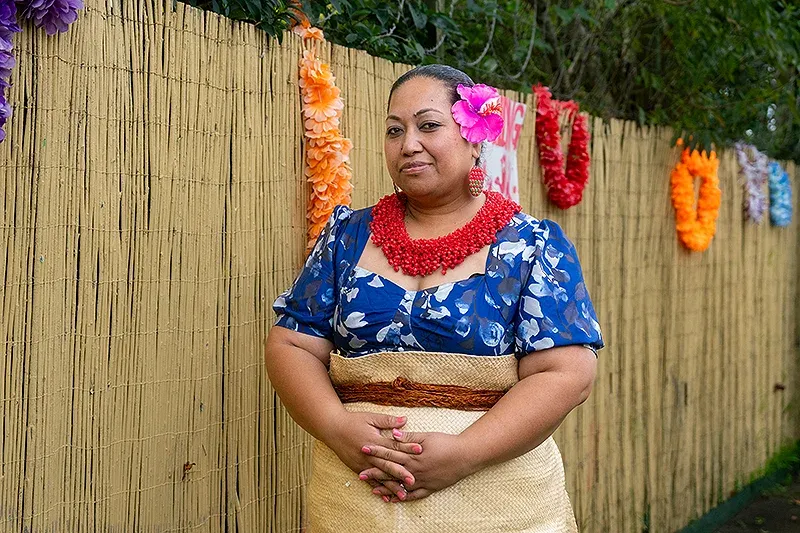
The centre is brimming with colour and the sounds of children playing and laughing, but is located in a part of South Auckland that has long been economically deprived, and where many families struggle in the face of social inequities. “Our centre is like an oasis in Ōtara that is building hope for our tamariki.”
The philosophy of the centre, which is governed by the Kakala Malie Incorporated Society, is encapsulated in its name: Kato Kakala. “In Tongan culture, kakala refers to the garland made of the fragrant flower, and the kato is the woven basket,” Jeanne explains. “The belief that we have as educators and facilitators is that we are the kato that holds these different kakala, and that our job is to make sure that they bloom and flourish, that they don’t wilt.
“We make sure every child is thriving, including when they move on to primary school and beyond. The statistics around here portray a different reality for our tamariki and their families, but we try to stand against that and build from the grassroots up. Our work is also highly recognised by the Education Review Office (ERO) within the realm of Pacific ECE. For us, that reaffirms our commitment to building a collective sense of belonging.”
Wrapping care around the whole family was never more important than during the Covid-19 pandemic when whānau were locked down and needed extra support.
“We designed a curriculum that was not just for the children, but for the whole family who were living together – grandparents, uncles, everyone. Some of them were not good with computers, but they were good with Facebook so we could connect with them that way,” says Jeanne. “It was very rewarding to have them let us into their space. We’d see a grandfather baking with his grandson, a father vacuuming or doing motherly jobs.
“There were lots of positive learning experiences that came out of it. We built the understanding that when it comes to learning, you don’t need to buy things, you can be creative and use what you already have. Even washing the dishes and gardening are a chance for learning together.”
But the programme didn’t end with the pandemic. “In the post-Covid era, we knew we needed to make sure that the collective wellbeing of families was still sustained in a landscape of uncertainty.”
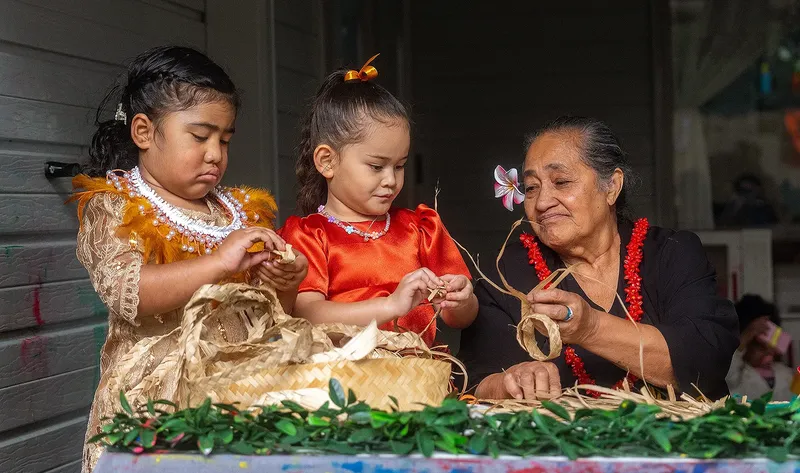
This is when Jeanne and Meleane began talking with MAS Foundation about how to continue this important work of connecting into the wider community and passing on the knowledge of Tongan cultural traditions while engaging every generation of whānau.
From there, they developed the Fatu Lālanga programme of workshops. “Fatu means heart and lālanga means weaving, so this is about weaving the theories and the practices together to ensure that our whānau and our tamariki are thriving together.”
Along with initiatives supporting the physical health of family members through exercise and access to gyms, they spent time together making kakala garlands. “When we’re doing the kakala, we get to discuss all sorts of different topics, and for us it’s therapeutic. All the busyness of the world disappears.”
Jeanne has also been sharing this knowledge beyond the local community. “I ran a kakala workshop at Auckland’s Cordis hotel for 200 health workers, and I’ve taken it to Dunedin and Christchurch too,” she says. “It’s the best feeling when other cultures are open to learning about it. It means we’re building that awareness and that connection.”
Jeanne says it’s a practice that can work for and benefit everyone. “The beauty of the kakala is that you make it your own, you weave it how you want to. It’s flexible and not fixed about how it has to be.”
Back in her own community, Jeanne says the MAS Foundation grant has really enabled the continuation of transformative practices around health and wellbeing. “We’ve been able to implement initiatives and solutions that we know will work for our people, and we’ve been able to show that it is possible to make changes from within the community.”
Next year the centre will celebrate its 20th birthday, and just thinking about that achievement brings a tear to Jeanne’s eye. “All these years we’ve always tried to do our best, not just for the kids, but for the parents, the families and the communities. We know that children’s wellbeing is not disconnected from their families, it’s interwoven. We focus on the spirit of the collective – the children, their families, their aiga and their community.”
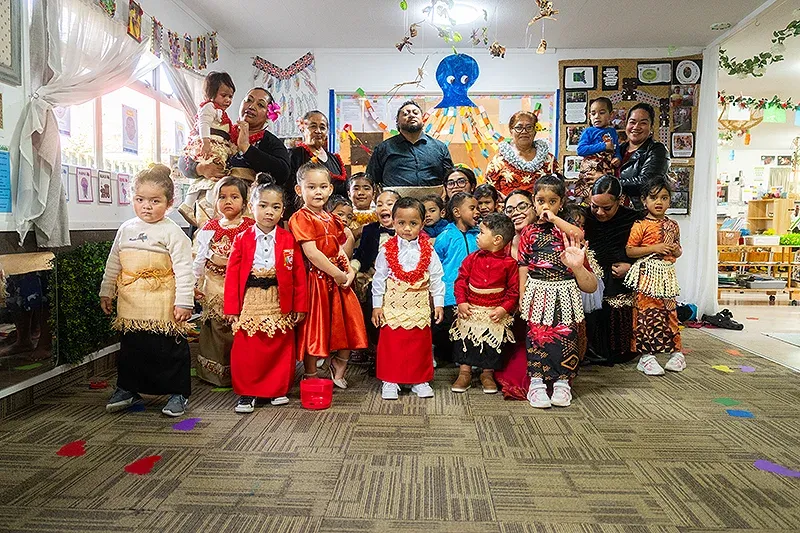
Mafi Funaki-Tahifote (Head of Foundation) says, “The Fatu Lālanga programme of workshops align closely with the Foundation’s value of ‘Whiria Te Tangata’. Kakala Malie weaves theories, practices, cultural insights and people together to thrive, not only within Akoteu Kato Kakala ECE Centre but also to the local and wider communities at large.”
Dr Julie Wharewera-Mika (Head of Foundation) adds, “Kakala Malie uplifts cultural wisdom and intergenerational leadership at the heart of community, championing locally-led solutions that honour identity, strengthen whānau and help every child and family flourish together.”
Head to the MAS Foundation grants page to read about the organisations that benefit from their support.
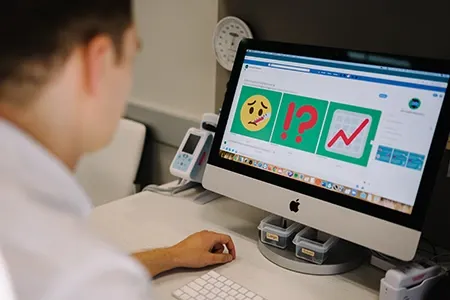
The MAS Foundation delivered its first round of funding in April, donating almost $350,000 to 10 not-for-profits focused on helping communities fight COVID-19. One recipient, a Facebook Messenger chatbot, helped ease pressure on the healthcare system.
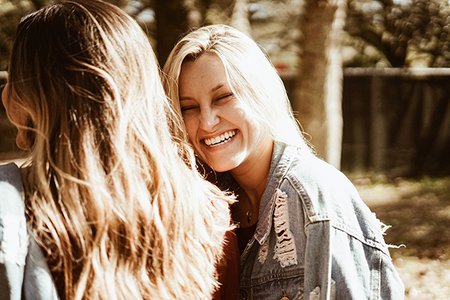
In 2017, Dr Juliet Rumball-Smith established Wāhine Connect to help women in the health sector looking for guidance from other women who had been there, done that. Juliet now hopes to double the number of mentees going through the programme each year.
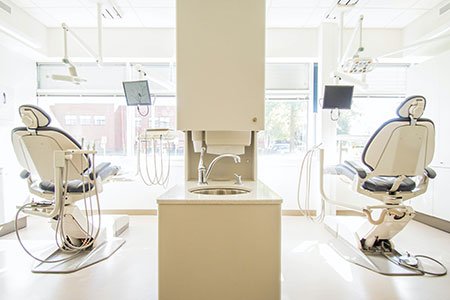
MAS Member Malcolm Dacker has been part of a team of volunteers offering emergency dental care in extreme cases in Dunedin since last March.